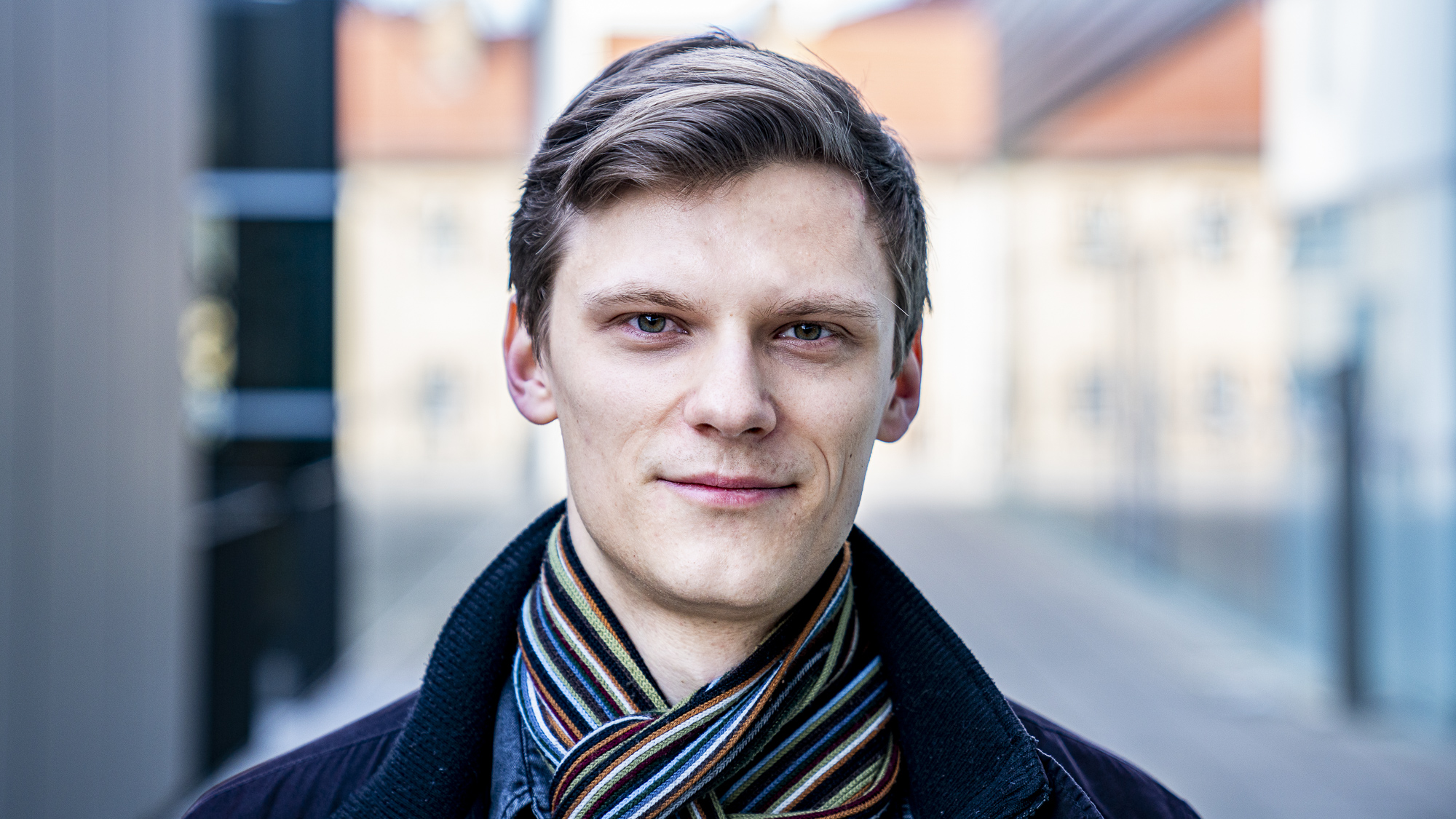
Despite his young career, filmmaker Conrad Winkler is not a blank slate. He once moved to Trotha for his documentary film “Stadtrand”. The film was awarded at the Leipzig Short Film Festival ‘Kurzsucht’ and also ran in the MDR’s program. For his graduation film, the documentary film student at the renowned University of Television and Film in Munich went back to the outskirts of the city – to Halle-Neustadt. What the Halle native is now planning, and why a picnic by the wayside sparked his idea, you’ll find out here
The own thesis often feels like a seemingly insurmountable challenge for students, one that many prefer to postpone. However, Conrad Winkler has no pages to fill up for his graduation, but an evening program. Last year, Winkler moved to Halle-Neustadt as part of his research, before that he had hardly any points of contact with the district and only knew Haneu from swimming lessons.
The interest in the place was there, but he didn’t have a concrete idea. Neustadt is charged with polarizing images for Winkler – between socialism and social hotspots. And so Winkler got his first doubts about his own project. The decisive impulse came from an accidental observation last summer in Südpark: Some children had a picnic on a narrow strip of grass in front of their house, no adults in sight: a moment of lightness and naturalness. Winkler sees this as a bridge to the beginnings when Halle-Neustadt was a young and child-rich city. ‘Somehow the emotional access through this picture was there at the beginning and I thought it makes a lot of sense to look at children in Neustadt now,’ says Winkler, ‘how are they experiencing the district and what are they making of it?’
From internship to casting
The material was found for a film that he would also like to see in the cinema – a good omen for the filmmaker for a promising project. In order to find the protagonists for his film, Winkler sat in on various children and youth facilities and spent a lot of time there, tackled, helped, implemented radio and film projects with the children and also ran his casting. And watching the children closely: who has a special charisma, with whom a bond can be built? Winkler finally won four children for his film: two girls and two boys – four nationalities. Working with children is inspiring for Winkler, but also challenging.
Children are more open, but the work is spontaneous, less predictable; you have to go with the moment and the child’s personality. Persuading parents, however, required extra effort to build trust and to explain both his project and the particularities of documentary filmmaking. After all, Winkler wants to accompany the families over a long period. It’s important to get to know each other, make his work transparent, and ease the families into the camera setting.
In the second half of the year, the shooting will start. 20 days are scheduled for this, which are chosen flexibly, after all Winkler wants to capture natural scenes from the children’s everyday life. But he also considers small impulses or tasks to guide the children – to spark engagement with their surroundings and highlight their talents. Children’s drawings might be animated with AI, or individual audio recordings could be shaped into a scenic sound collage. Whether these ideas bear fruit will only become clear during filming and editing. “Feature film is dictatorship, documentary is more like democracy,” says Winkler. Documentary is collaborative, developing dialogically from the process – a give and take. But what will Winkler’s protagonists take away from his film?
Halle-Neustadt is a popular material for media projects – a constant coming and going. A report by Stern-TV about Halle-Neustadt reached an audience of millions last year. The one-dimensional image that draws the documentary of Haneu gets caught in the minds of the people – even those who live here. However, Winkler’s work will not be an image film about the district. He wants to name the problems, but also not depict stereotypes or downsize crime statistics. Winkler not only wants to tell about, but from Halle-Neustadt and show that there are real people behind his protagonists. ‘Halle-Neustadt is a habitat and not a hotspot,’ says Winkler. With his film he will not be able to change the thinking of cinema-goers – that would be idealistic. But he wants to carry the film into the children’s lives and arouse interest in telling their own story. In doing so, he hopes to at least create an approach to their own perception, not only for the children who appear in his film, but for everyone who recognizes themselves in them.

